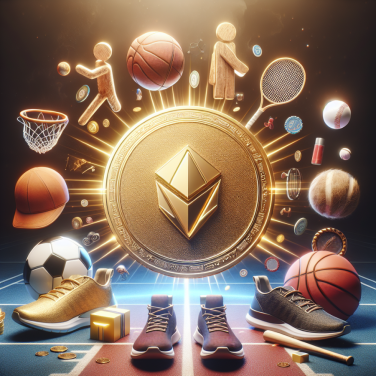Slam Dunk Deals: The Most Lucrative Crypto Collaborations in Sports History
Cryptocurrency has not only made its mark on the financial industry, but it has also penetrated the world of sports with some of the most impressive and lucrative collaborations in history. The synergy between these two spheres has given rise to deals that are nothing short of a slam dunk, merging athletic prowess with the innovation of digital currency.
One of the most jaw-dropping partnerships came when the NBA's Miami Heat announced a naming rights deal with the cryptocurrency exchange FTX. This strategic move renamed the iconic Miami arena to the FTX Arena, signaling the deep penetration of crypto into mainstream consciousness. This multimillion-dollar deal stretched over 19 years, making it an enduring testament to the linkage between crypto and sports marketing muscle.
It wasn’t long before other franchises took notice. The Dallas Mavericks, led by tech-savvy owner Mark Cuban, expanded their ticket and merchandise payment options to include Bitcoin and other cryptocurrencies, breaking new ground in how fans interact with their favorite teams. This decision paved the way for a whole new revenue stream, tapping into a community of tech-forward and crypto-enthusiastic fans.
Overseas, crypto collaborations have soared with the likes of football giants cashing in on the crypto craze. FC Barcelona, a titan of global soccer, embraced the wave by signing a sponsorship deal with blockchain company Chiliz to create Barca Fan Tokens. The engagement with fans through these tokens not only fortified the bond but also opened up a novel avenue for supporter involvement in club decisions, enhancing the fan experience through digital innovation.
Adding to the list of successful mergers, Crypto.com penned a significant agreement with the UFC, widely regarded as the premier mixed martial arts organization. This cornerstone sponsorship deal has Crypto.com branding presence integrated into all UFC live events, showcasing the potent combination of a high-adrenaline sport and the burgeoning sector of cryptocurrency.
The trajectory of these crypto collaborations in sports is a tale of ambition and foresight. Not only do they provide a platform for fan engagement and increased brand visibility, but they also pave the way for athletes to involve themselves directly with cryptocurrency through endorsements and even salary options. As the blockchain continues to score big with sports teams and associations, it becomes clear that crypto is not merely a fleeting trend but a transformative force, reshaping the business of sports in profound ways.
Read also:
Top-Tier NFTs Snapped Up by Renowned Athletes
Shooting for the Moon: Benchmark Crypto Earnings in the Athletic Arena
In the rapidly-evolving landscape of sports compensation, cryptocurrency earnings have emerged as a new frontier. With athletes at the top of their game looking for innovative income streams, digital currencies are increasingly part of the conversation. This shift is not just about staying current with technologic trends; it's about leveraging the power of these new assets to achieve unprecedented financial gains.
The fusion of crypto and sports was thrown into the spotlight with headline-grabbing deals. Take, for instance, the arrangement with Russell Okung, an American football player who made history by opting to receive half of his $13 million salary in Bitcoin. This savvy move positioned him as a trailblazer in the athletic arena, signaling a paradigm shift in how athletes approach their earnings.
While crypto salaries are still a novel concept, they are gaining traction across various sports disciplines. For soccer enthusiasts, the case of Lionel Messi is particularly noteworthy. Part of his welcome package at Paris Saint-Germain included a significant amount of PSG tokens, the club's cryptocurrency. Such deals are not only lucrative but also foster a deeper engagement with fans, who also invest in the tokens, interlinking fan support with player performance and financial benefits.
Crypto earnings are not limited to player paychecks. Endorsement deals and sponsorships have joined the trend, with athletes partnering with leading crypto exchanges and becoming the faces of digital currency. These partnerships often include compensation in cryptocurrencies as part of the deal, exemplifying the trust and belief athletes are placing in this digital asset class.
However, navigating through this digital asset landscape requires athletes to be particularly well-informed. Crypto salaries introduce a degree of volatility unseen in traditional contracts. When Okung converted his salary to Bitcoin, he benefitted from a bull market that significantly increased his earnings. This illustrates the potential upside of cryptocurrency arrangements: if the market performs well, the value of the athlete’s earnings could skyrocket.
In contrast, the rollercoaster nature of digital currencies also holds significant risks. Market downturns could mean that an athlete's crypto salary may decrease in value, sometimes substantially, by the time they wish to convert it into traditional currency. It’s a game of high risk and high reward, prompting athletes to become more akin to investors, watching market trends and predicting the best moments to convert their digital holdings.
The evolution of compensation in sports is a reflection of larger economic trends and changing preferences of elite athletes.




